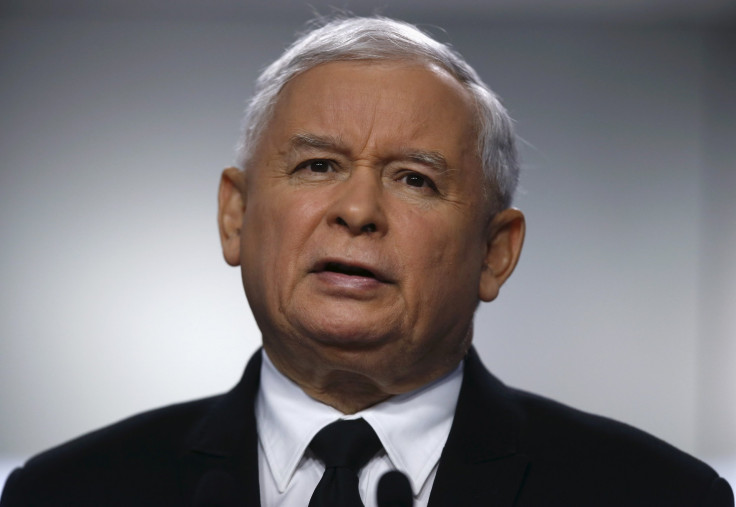EU Refugee Crisis: Muslim Refugees Carry Dangerous Diseases, Says Former Polish Prime Minister In Latest Europe Controversy

Former Polish Prime Minister Jaroslaw Kaczynski denounced his government's plan to take in 7,000 refugees from the Middle East as part of the European Union resettlement plan, claiming Tuesday that local people are susceptible to the dangerous diseases that he says the Muslim refugees carry, the Associated Press reported.
“There are already signs of the emergence of very dangerous diseases which haven’t been seen in Europe for a long time: cholera on Greek islands, dysentery in Vienna, various types of parasites, protozoans, which aren’t dangerous in the organisms of these people but which could be dangerous here,” Kaczynski told voters in Makow Mazowiecki, Poland.
His remarks sparked outrage from some of his political adversaries. One left-wing politician, Janusz Palikot, said Kaczynski's language was racist, and he made comparisons between the former prime minister and Adolf Hitler.
Andrzej Celinski, a left-wing politician and former anti-communist dissident, also drew comparisons to Nazi Germany, saying that the remarks reminded him of the way the Nazis associated the Jews with typhus.
“Frightening [people] with parasites is the language of Nazism,” Celinski said on TVN24. “Kaczynski has to know this; he is not an idiot.”
Kaczynski fired back on Wednesday that the comparisons were "absurd."
Polish leadership has struggled with how to address the refugee crisis in Europe. Waves of people started arriving in Europe early this year from Middle Eastern countries attempting to escape militant groups and other horrors. Polish Foreign Minister Grzegorz Schetyna said the European Union needs a united plan, but he is not on board with one that imposes quotas for individual countries.
"We cannot allow the refugee crisis to divide and antagonize Europe," he said in a statement last month. "That is why we view the challenge put before us not in terms of compulsory quotas, which are probably outdated and insufficient by now, but in terms of solidarity."
© Copyright IBTimes 2025. All rights reserved.






















